Let’s start with a clean slate!
In this article we tell about white construction dust, grey room dust and the ways that help cleaning work and which when used do not reveal a thick cloud of dust in sunlight.

In this article we tell about white construction dust, grey room dust and the ways that help cleaning work and which when used do not reveal a thick cloud of dust in sunlight.
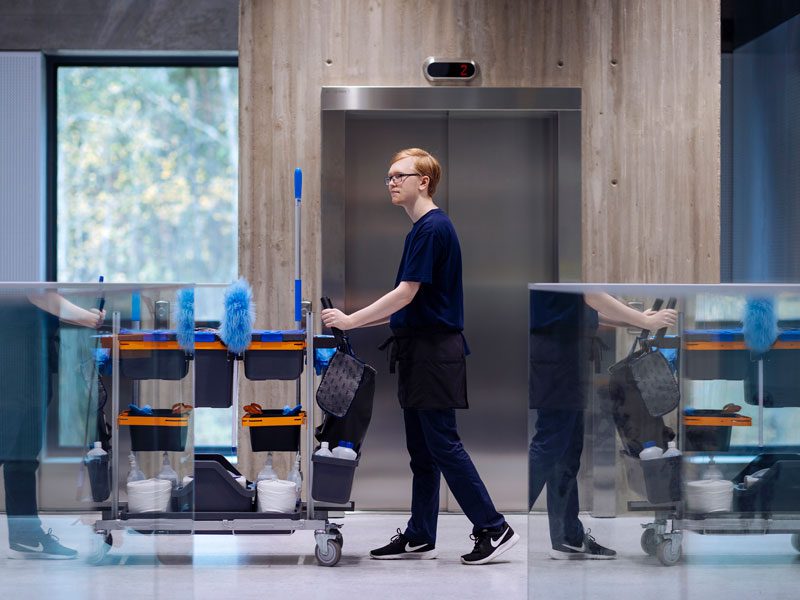
Most of us are irritated by visible soiling and dust. A gloomy report states that without regular cleaning premises neither keep in good condition and nor is healthy indoor air maintained. After all, cleaning means the removal of dust and soiling from surfaces. Cleaning frequency and the tools and methods used can affect the amount of room dust. Even though clean indoor air is considered a basic requirement for workspaces, cleaning work itself is surprisingly undervalued. Hopefully, the blueprint launched by Senate Properties to use cleaners as indoor air agents and the importance of cleaning during the corona pandemic will finally contribute to raising the value of cleaning work.
In this article we tell about white construction dust, grey room dust and the ways that help cleaning work and which do not reveal a thick cloud of dust in the sunlight when used.
Small dust bunnies are made of scurf, hair, pollen, food crumbs and finely ground parts of plants and insects, soot particles and sand. And small dust bunnies are made of microbes, microbial metabolic products, residues of chemicals used and fibres, particles and even gases from building and interior decor materials and clothes!
The largest, so called coarse dust particles do not float in the air but settle on surfaces and are then blown back into the air when papers and belongings are moved and when moving over the floor. Cleaning ensures the regular removal of coarse dust particles from flat surfaces. They are able to attach to other particles, and so they end up not just on flat surfaces but also on the surfaces of walls and ceilings. This is why cleaning walls and ceilings is important in the removal of fine-grained dust. Ventilation also removes fine-grained dust floating in the air.
There are reference values for the quantities of dust and fibres in the indoor air and for the accumulation of dust on surfaces. The scientific community is currently considering whether limit values should be set for chemicals in dust. On the other hand, the success of cleaning work can also be measured in terms of the level of microbes, proteins or specific microbial enzymes on surfaces.
If there is no dust management during demolition work or construction, dust generation on the building site and remaining in the building causes health and comfort issues both for construction workers and for users of the finished building. Dust during the building phase settles on flat surfaces long after the building has completed and may cause discomfort to the facilities users.
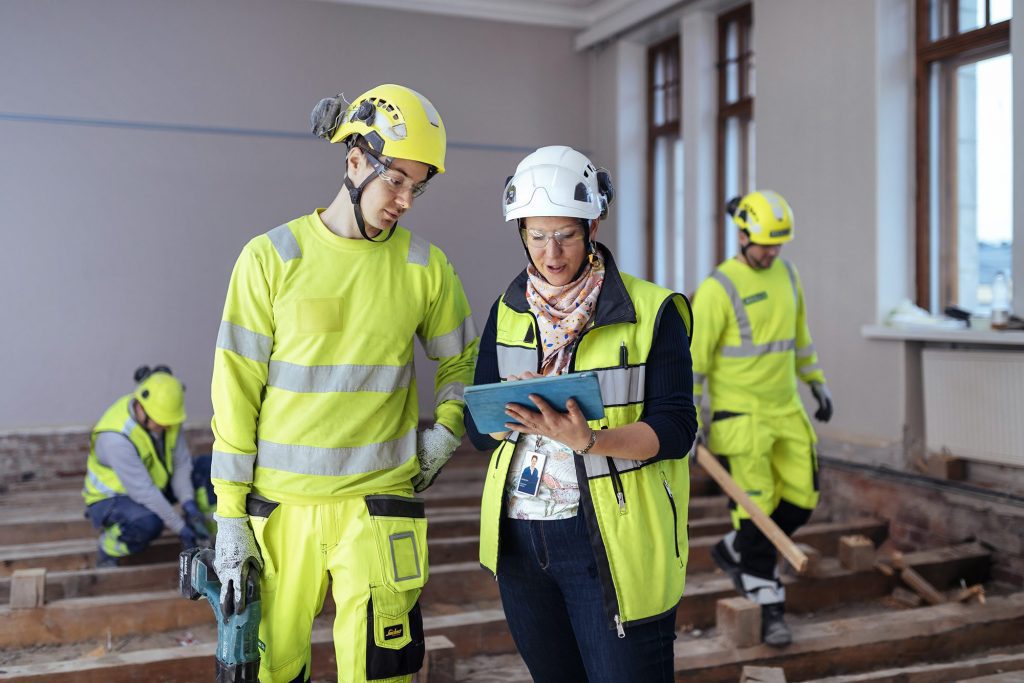
Senate Properties has cleanliness management guidelines which provide guidance for dust management at a worksite during the demolition, construction and reception phases. Dust-free working methods must be used at a building site and regular building cleaning must be done as if an integrated step in the building process and ensure two-phase final cleaning of the work site. Phase 1 of the final cleaning starts when the surfaces and fixtures have been installed and the dusty work stages have been completed. The aim is to prevent construction dust from entering the ventilation ducts during operational testing of the ventilation system. In phase 2 of the final cleaning, a commissioning cleaning and any treatment of the floors is done. Loose dirt and stains are also removed from ceiling, wall and floor surfaces. Dodging this cleaning results in dozens of kilos of construction dust waiting to enter the air and in time to be filtered out – through the noses of the facilities users.
Massive cleanliness expectations therefore weigh relentlessly on the slender shoulders of cleaners. The situation becomes difficult if, due to scheduling problems beyond the control of the cleaners, final cleaning has to be done on the weekend and night before moving in.
Senate Properties aims to guarantee enough time to ventilate a finished building before the users move in. Besides this, in new/renovated premises, the ventilation is kept on the whole time at the designed operating capacity for 12 months. Sometimes, when cleanliness management has failed during construction, the commissioned premises need to be cleaned more often than the normal frequency agreed for several months.
Even though dustiness, untidiness and lack of cleaning increase discomfort and even cause health hazards, we need to be honest and remember that also cleaning itself can cause problems to the cleaner and the building. The wrong cleaning methods (e.g. using a feather duster) lift dust into the air and a vacuum cleaner with low filtering capacity can temporarily result in a deterioration of indoor air quality. Use of too much water when cleaning dry spaces can damage the surface material (e.g. linoleum), result in odour nuisances or even structural moisture damage. The scents and volatile ingredients contained in cleaning agents burden the indoor air and can cause discomfort for the most sensitive persons.
Senate Properties’ cleaning contracts require the use of unscented or mildly scented detergents. The right methods, tools and protective equipment are part of a cleaner’s expertise.
Sometimes, the floors and flat surfaces in a workspace intended as an office are brimming with papers, files and cardboard boxes due to a stubborn obsession to save money or to insufficient storage spaces. Desks and even noticeboards are covered in a thick layer of evidence of feats from years gone by. The floors may also be adorned with piles of shoes or tangles of electrical wires. Giving such places a normal clean is impossible. Such workspaces call for a KonMari touch or even a good clear out. An uncleaned room is a health risk: paper and room dust result in a deterioration of indoor air quality and can cause eye and respiratory symptoms. On top of this, such a room is a fire, occupational safety and data security risk.
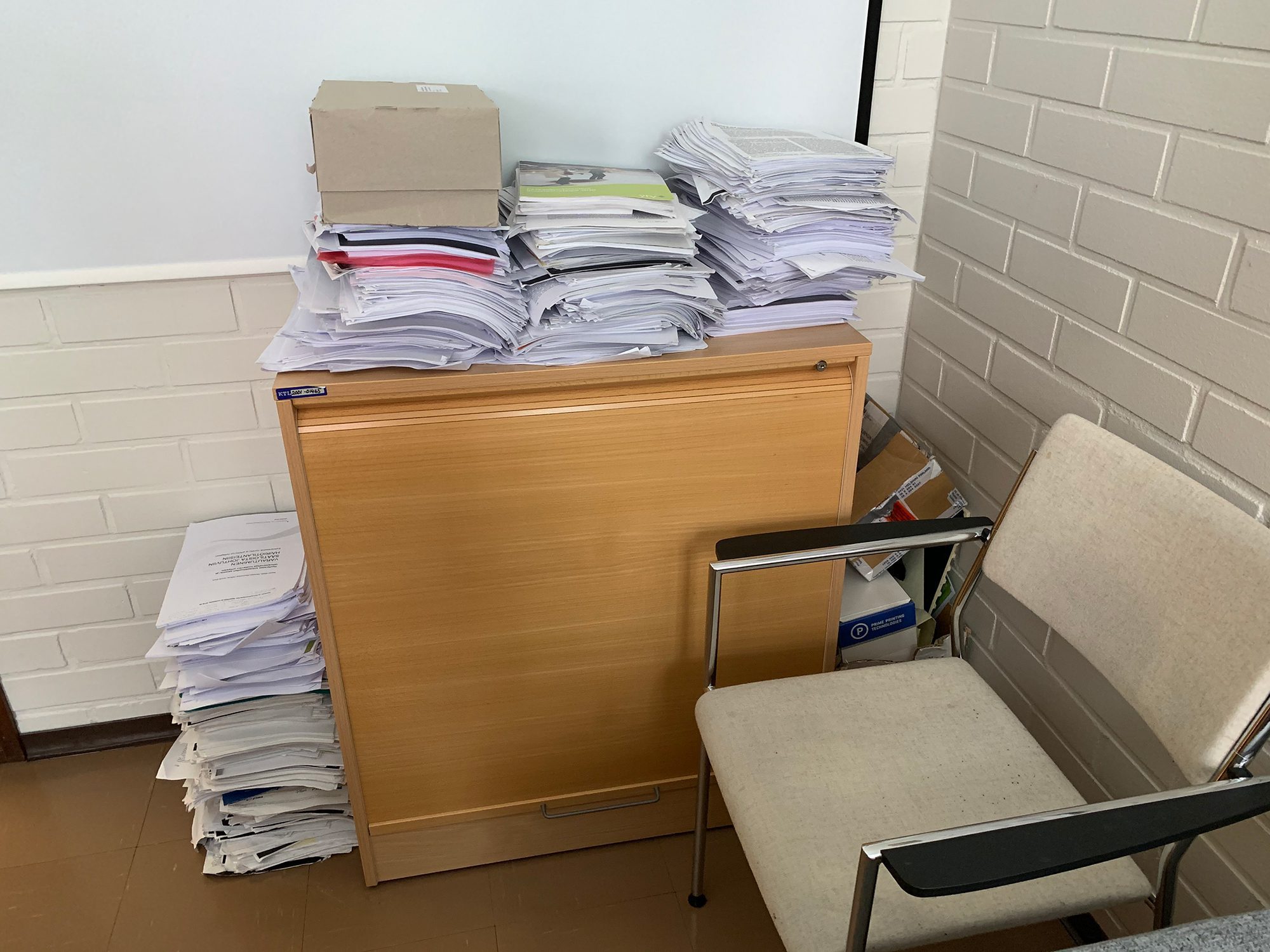
Senate Properties takes indoor air issues seriously and we have zero tolerance for indoor air problems. We require our cleaning services partners to meet the agreed cleaning quality criteria. Even if a cleaner has to wade up to their shoulders while dodging boxes and other obstacles, they are not allowed to move objects or papers on flat surfaces when cleaning. This is why it is important that facilities users themselves take care of the cleanliness of their offices. Wanting to create unimpeded working is also about appreciating a cleaner’s work. If defects in indoor air quality are experienced in such an uncleaned room, a start cannot be made on detailed indoor air surveys before the cleanliness and tidiness of the office have been found to be conducive to maintaining good indoor air quality.
In office premises, cleanliness means that there are no archives and stationery items on window sills, desk tops and on top of cabinets, nor personal items in need of a better storage space. The floors must not have clutter, such as additional furniture or the user’s own rugs, that does not belong there and which hinders cleaning. When everything is put away, there’s maximum surface free and cleaning delivers maximum benefit.
Senate Properties helps in arranging a cleaning campaign by, for example, providing the waste containers. However, the first step is with the office user and their supervisor – they need to think whether the space can be cleaned and what material needs to be kept for the future and in what form. Once this has been done, we can get together and think about what additional storage solutions the client needs and what their cost implications are.
Each year, tens of thousands of conscripts traipse around their barracks or their sleeping quarters in their boots! In order to remove the dirt, sand and dust that gets carried inside, the conscripts receive – these days if not exactly on-hand, but by holding a mobile phone – a cleaning lesson. Namely, Defence Properties Finland has produced cleaning content for the Finnish Defence Forces’ own e-learning environment. The daily cleaning responsibility of conscripts is to clean the flat surfaces and floors of their own quarters and communal areas of the barracks with microfibre towels. However, cleaners are responsible for the daily maintenance and washing of cleaning equipment.
Defence Properties Finland organises cleaning services of the same level for the Finnish Defence Forces across the country. A description of the quality level where the cleaning level sought, cleaning frequencies, regular and less frequent cleaning work as well as any additional services has been made for each building. Defence Properties Finland has defined the cleaning levels in accordance with the INSTA 800 Nordic Cleaning Standard on a scale of 1 (attic storage) – 5 (healthcare intervention rooms).
Senate Properties also defines cleaning service descriptions precisely for each space separately. This means that the content and quality criteria of regular standard cleaning procedures are defined for each cleaning service category. Similarly, the content of periodically recurring (e.g. dust removal) and once a year (e.g. waxing floors) cleaning work has been defined. The general quality criteria for property services have been described in the Building Information Foundation RTS’s KiinteistöRYL publication.
It’s important to understand that the content in a cleaning contract for an activity-based environment cannot be the same as that for a heavily-trafficked street-level customer service point. Facilities users have the same cleaning service descriptions of their facilities as the cleaning services providers.
Concerns are often expressed that to save costs, cleaning companies make cleaning times too tight for cleaners to be able to do their job properly. At Senate Properties, we have as a rule let cleaning industry professionals determine the number of hours spent at our premises. We check, assess and intervene in any situation where cleaning falls short of the agreed service and quality descriptions. The bonus-sanction scheme for cleaning services used by Senate Properties also incentivises the cleaning provider to allocate resources correctly in our premises.
The results of cleaning are scrutinised not just by the cleaner doing the work and by facilities users, but also by the eyes and measuring devices of several other employees and experts. The cleaners’ supervisors carry out self-monitoring inspections and regularly report on these. Defence Properties Finland’s cleaning or service managers and Senate Properties’ service managers go on quality assessment rounds. Cleaning industry consultants on the other hand regularly assess cleaning quality based on Senate Properties’ cleaning services quality evaluation form at least twice a year.
Clients may, if they wish, join the quality rounds Senate Properties arranges and always receive quality reports. Clients also have a chance each year to give feedback on the quality of cleaning services, cleaning work results and the willingness to serve of cleaning services staff through a customer satisfaction survey. These results are reviewed with property, cleaning and service managers and discussed with the service provider. Client feedback on cleaning is naturally given in joint meetings between Senate Properties and the client through service request systems and email.
In order to get rid of indoor air problems, the warning signs that predict them must be addressed before the situation escalates to inconvenience facilities users. How then could human senses effectively detect changes in indoor conditions or premises by comparing the situation in adjacent premises? At Senate Properties, we found that cleaners go round almost all the facilities in a building on a daily basis and we made them indoor air agents. Since 2019, we have had in place an instant incentive model for indoor air observations in those buildings where Senate Properties arranges cleaning services. An incentive is paid to a cleaner making an observation of particular importance in preventing indoor air problems. Our indoor air experts process indoor air observations made by cleaners and take the required measures forward.
Cleaning work is organised in different ways in Senate Group’s two unincorporated enterprises:
At Defence Properties Finland, the client, or the Finnish Defence Forces, provides its own cleaning services using its own cleaning staff in security classified premises, whereas external service providers are used at premises permitted by the Finnish Defence Forces. Defence Properties Finland has around 140 cleaners of its own, most of whom have been happy in their jobs for decades – thanks to interesting properties and decent clients. Around 85% of Defence Properties Finland’s cleaners have completed a vocational qualification in cleaning, which means they are good at regular cleaning, using various cleaning machinery and various additional tasks.
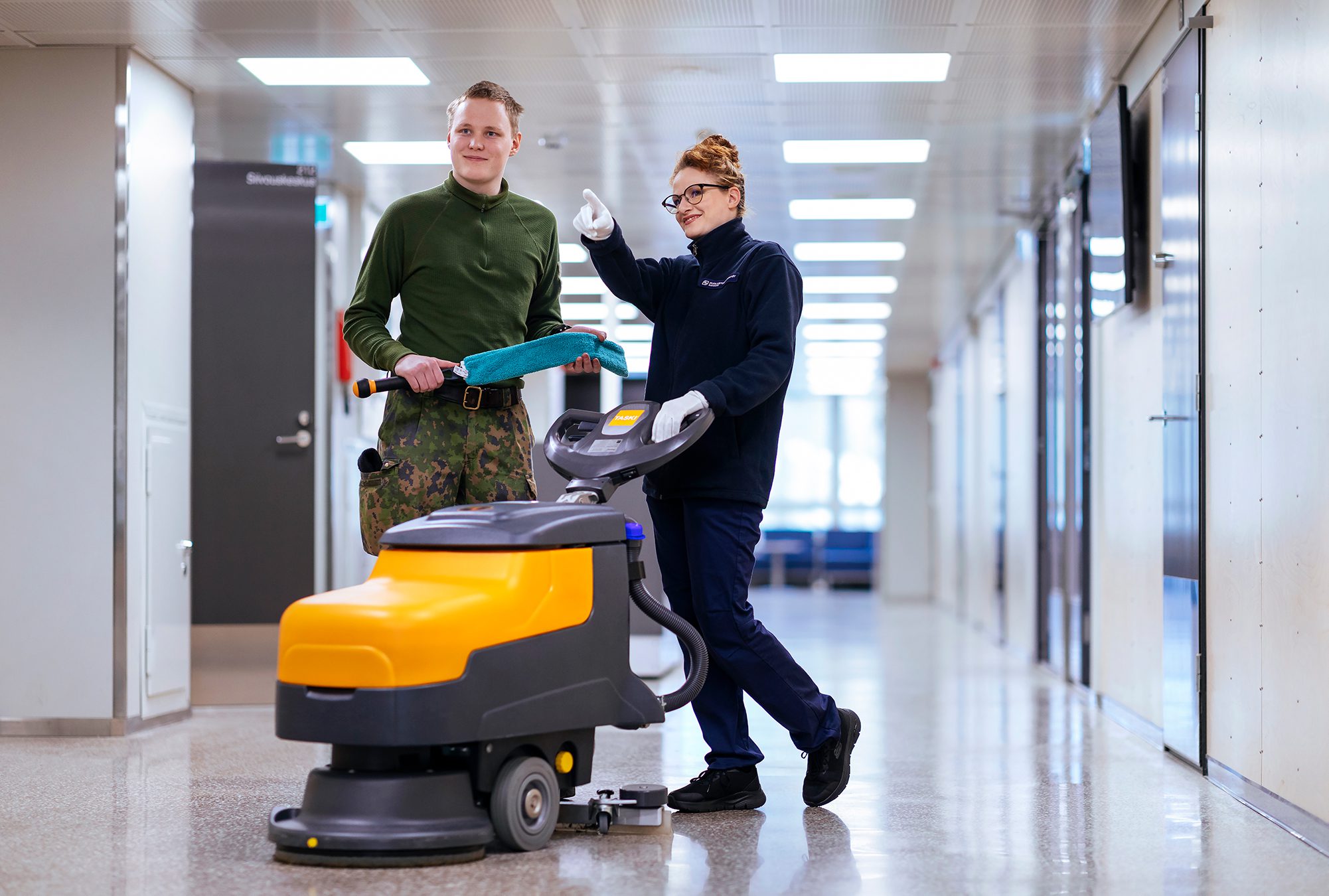
Cleaning services in Senate Group have received very good customer feedback in the annual client satisfaction survey. The result of cleaners’ work is thought to be good and cleaners have been commended for their flexibility.
Senate Properties requires external cleaning services providers to have adequate expertise and education, which is met in the case of the supplier’s supervisors. These days it’s very difficult to recruit educated, experienced and skilled cleaners. Senate Properties gives cleaners a chance to study for a vocational qualification during working hours and many cleaners have gained a qualification in this way. In addition, Senate Properties’ e-learning platform has cleaning and indoor air training modules that cleaners must complete within two months of having started to clean Senate properties. We have also arranged cleaning and indoor air training for cleaning services providers. For example, at the beginning of 2020, we trained more than 700 cleaners and their supervisors. Cleaners, just like any other outsiders working at central government premises, must complete Senate Properties’ security training.
Senate Properties and Defence Properties Finland plan to launch cleanliness campaigns during 2023. In these campaigns, we will work together with clients to determine the cleanliness situation and plan a campaign where facilities users pledge to improve the cleanliness of their own workstations and communal spaces.
Authors
Anne Korpi, Indoor Climate Specialist at Senate Properties, who is appalled by any kind of air pollution.
Kirsti Liljeroos, Product Manager at Senate Properties, who develops cleaning services together with service managers.
Riitta Häyrinen, Product Manager at Defence Properties Finland, who is delighted that the importance of cleaning services has been taken into account in indoor air matters.
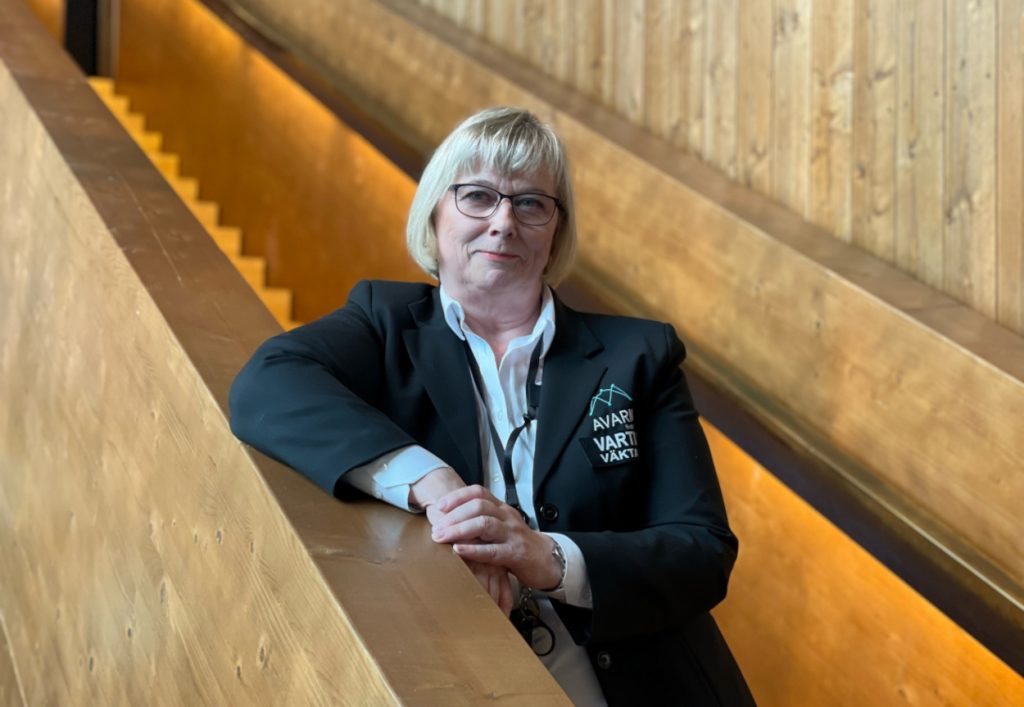
The reception service is key to the everyday operations of many properties. Anyone entering a property will encounter the reception service when they first step inside the premises and last…
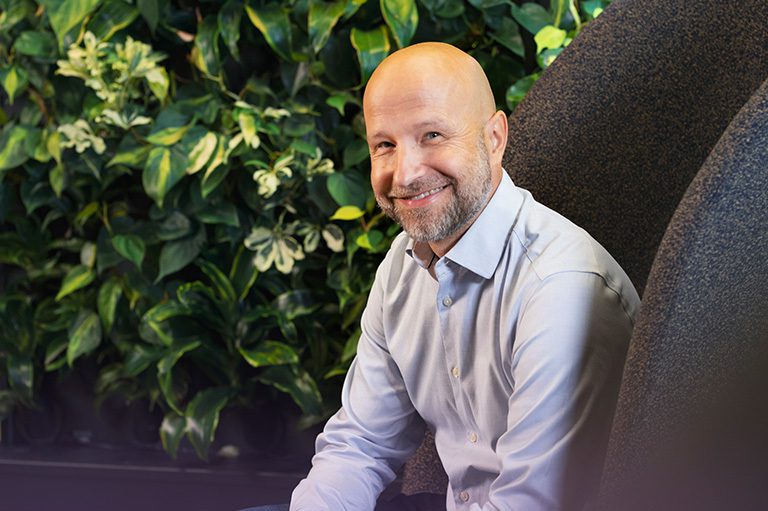
"In spring, the Finnish Innovation Fund Sitra published its Megatrends 2023 review, which contains a very serious message. The most significant current trend is an erosion of nature’s carrying capacity…
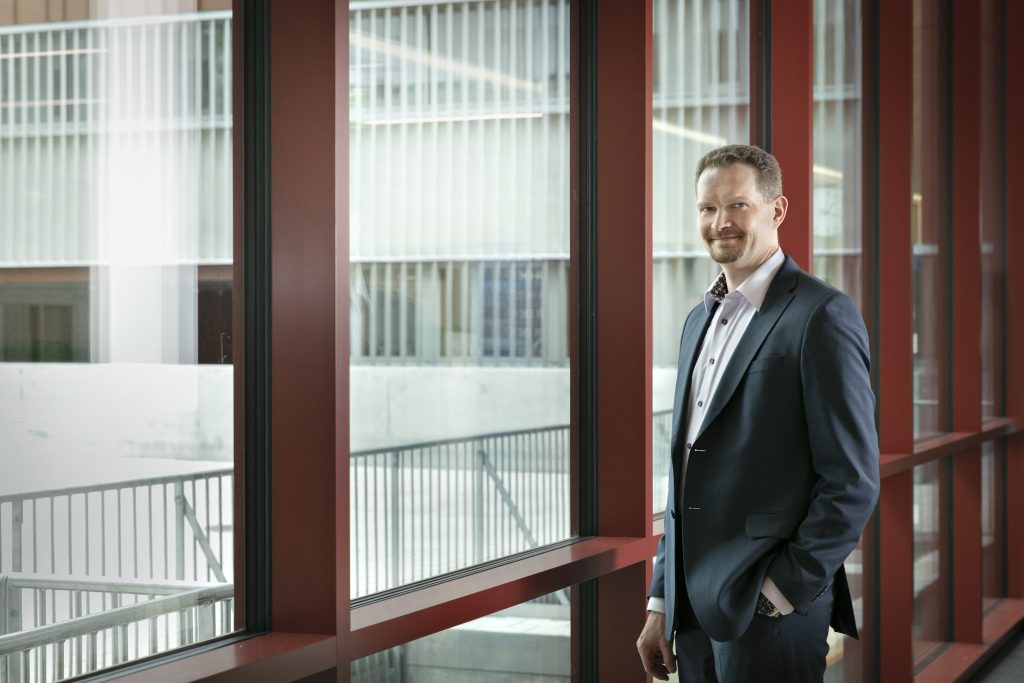
“Preparing for emergency conditions has become a key goal since February 2022. We strongly support our clients in the changed situation,” says Tuomas Pusa, Chief Operating Officer at Senate Properties.
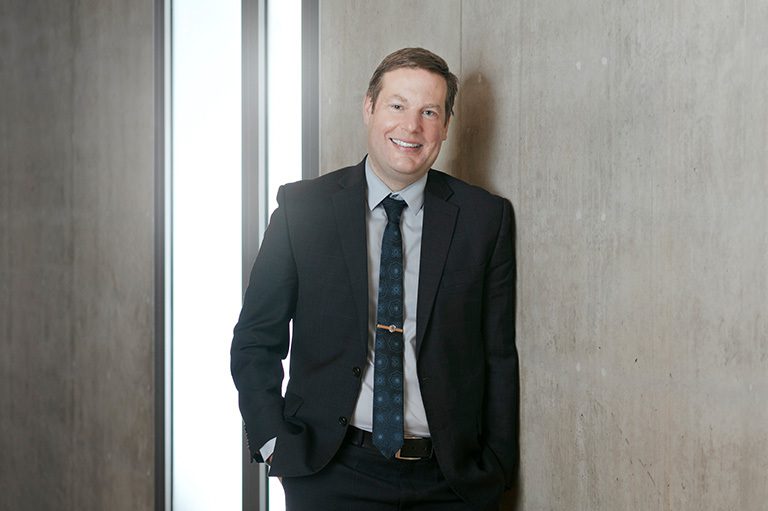
Even though as a NATO member, Finland is still primarily responsible for her own defence, our future defence is much more than our earlier national solution and NATO’s joint deterrence…
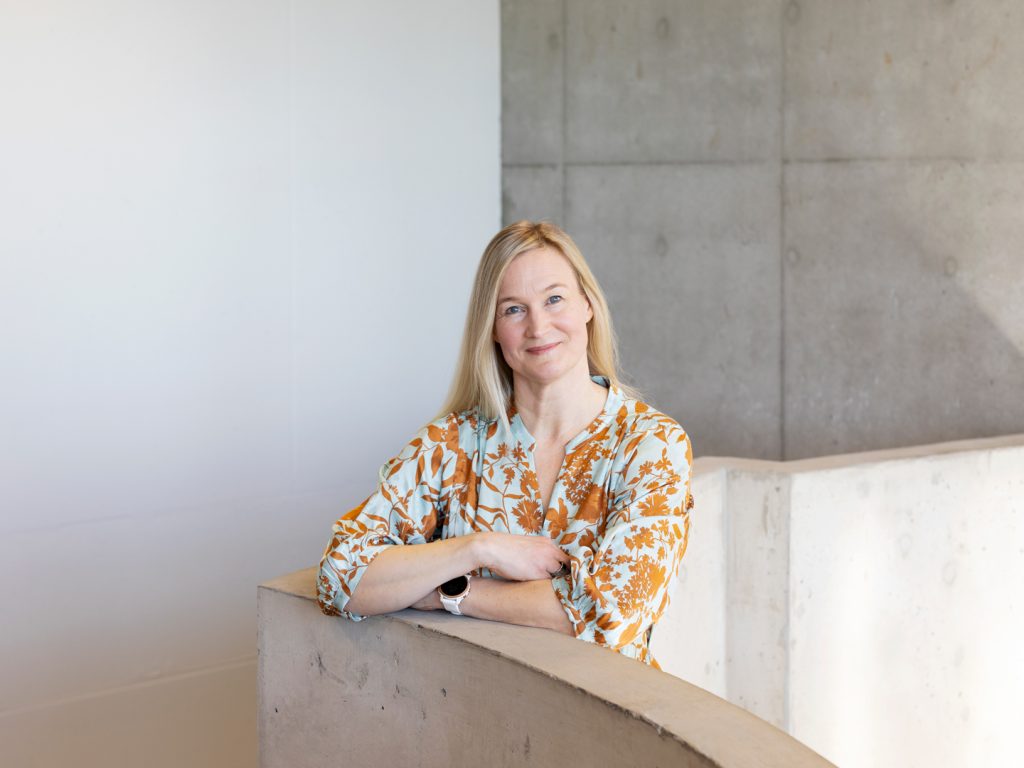
"The Energy Saving Programme we launched promptly in the autumn had already delivered good results during the winter. Together with our clients, we achieved significant savings,” says Sanna Jääskeläinen, Programme…
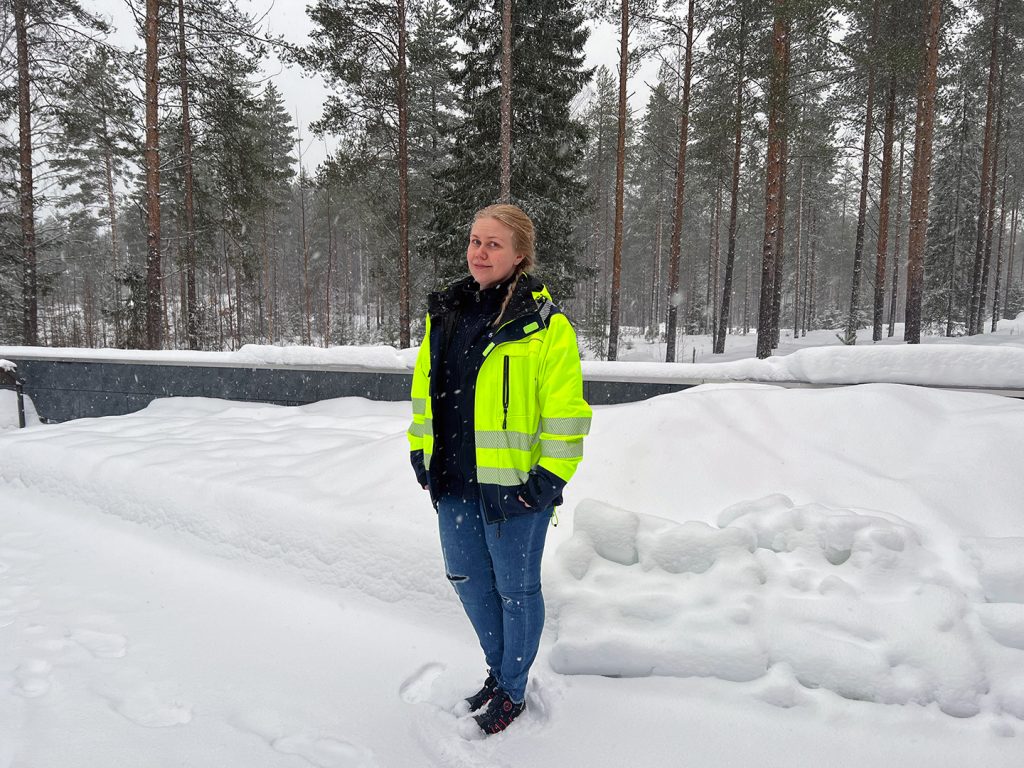
At the initiative of Päivi Seppänen, Defence Properties Finland’s Cleaning Manager, the Kainuu Brigade reinstated cleaning lessons on the conscript training programme after a break of several years. Conscripts starting…
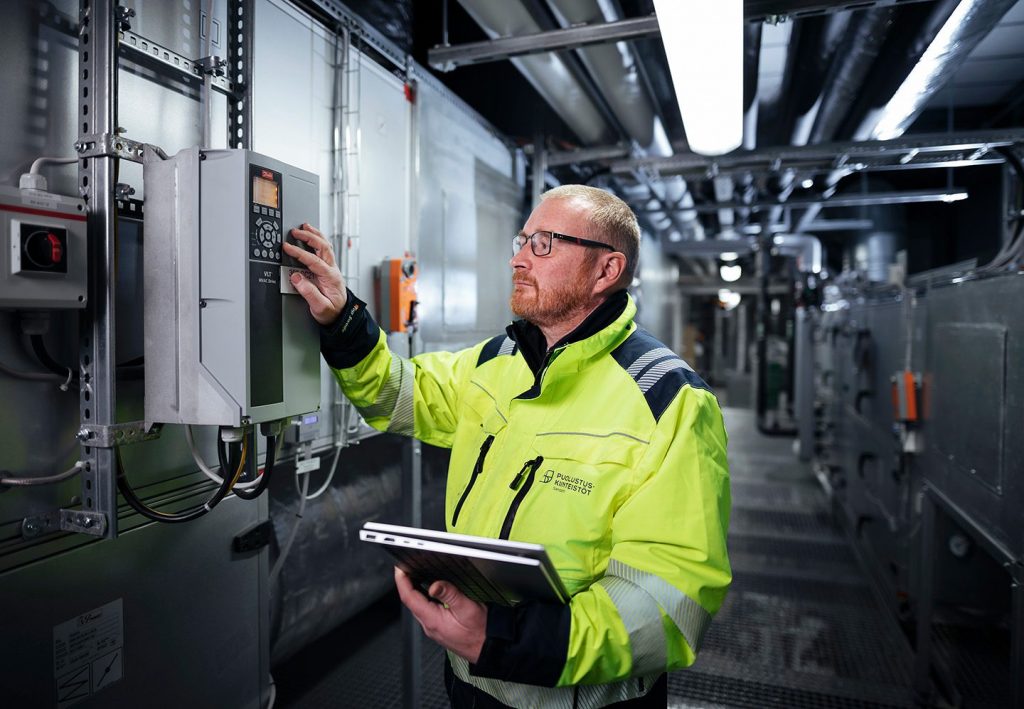
Defence Properties Finland has initiated enhanced security and preparedness measures.
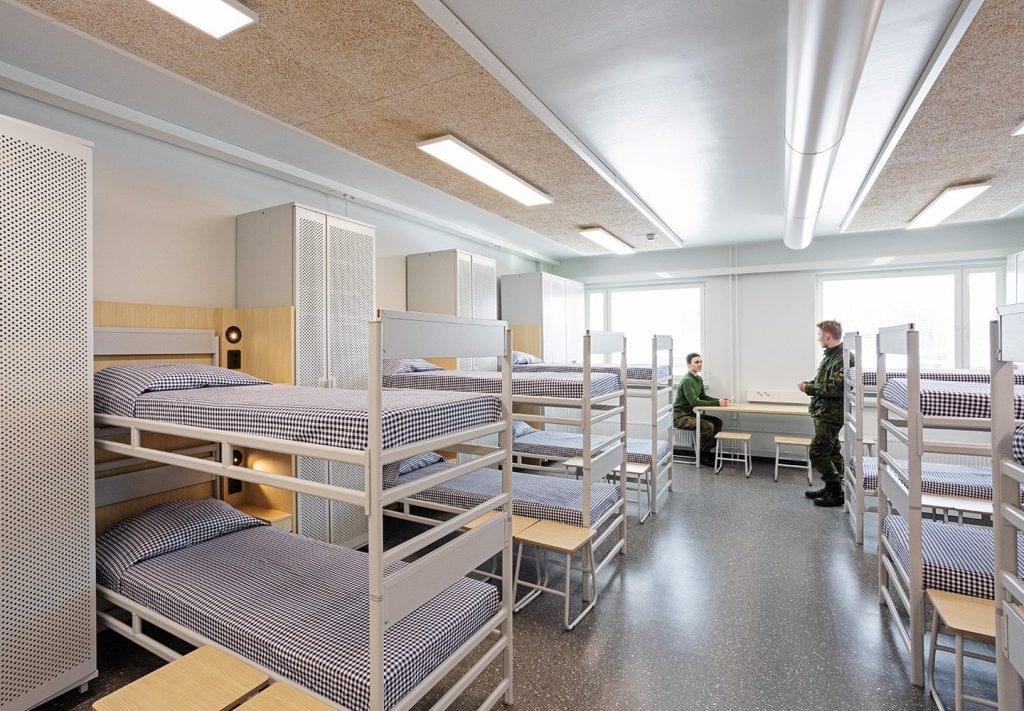
Defence Properties Finland is investing even more heavily in ensuring good indoor air conditions for conscripts and for the personnel of the Finnish Defence Forces and their strategic partners. The…

Defence Properties Finland invests heavily in the prevention of indoor air problems: the entire Finnish Defence Forces’ building stock will be renovated during the current decade, and we have recruited…